10/28 Update: On October 28 the FCC voted to grant itself additional power to revoke previous FCC authorizations for companies on the FCC covered list. Here's what that means:
Previously a company being added to the FCC covered list meant that they would not be granted future FCC licenses for new products, but currently approved products could continue to be imported and sold as normal. Going forward, the FCC now has the power to revoke previous authorizations on a case by case basis.
If the FCC were to revoke the license for the T50 or T100 - the continued import and sale would be prohibited, however the use would be unaffected. It will remain legal to use your T50/T100 drone, but not legal for us to import and sell.
Frequently Asked Questions About the Possible FCC license clawback:
-
If the FCC revokes the T50/T100 FCC license, will my drone be bricked, and unable to be used?
No - Your drone will continue to operate as usual. It will not be "bricked" or "grounded". You will legally be able to continue normal operation. The FCC vote clearly mentioned the continued use as being permissible, while stopping the import and sale. -
With granting itself additional powers, is the FCC specifically targeting DJI drones?
The FCC appears to be targeting Chinese Telecoms companies. In public comments on October 28, the FCC commissioner and chairman mentioned Hikvision, ZTE, Huawei, China Unicom, and China Telecom as Chinese companies they intend to take action against. The commissioner and chairman have not publicly mentioned DJI. -
If the FCC revokes the T50/T100 FCC license, will it be legal to operate my T50/T100?
Yes - Your drone was legally imported and sold with a FCC license. It will remain legal to use and operate, even in the case that the FCC license is revoked and imports/new sales are stopped. - Will the FAA remove the T50/T100 from the authorized UAV list as a result of possible FCC action?
- No. The FAA is a completely separate arm of the government tasked with maintaining safe air travel. T50/T100 remain among the safest agricultural drones available, and fulfill all FAA requirements.
-
If the FCC revokes the T50/T100 FCC license, will I be able to purchase parts?
Yes - Only the complete drones, and radio-transmitting parts that require a FCC license that has been revoked will no longer be legal to import/sell. Motors, arms, landing gear, batteries, tanks, etc will remain legal to import and sell. We plan to continue to provide after-sales support for the T50/T100. The remote controller, airframe and radar units have individual FCC licenses. -
If the FCC decides to revoke T50/T100 FCC licenses, what will the process look like?
This will be announced via a public notice, and give at least 30 days for public comment, while considering national security and economic impact. At the end of the public comment period, the FCC will announce their conclusion. -
Is it probable the FCC will revoke DJI FCC authorizations for future imports/sale?
It's impossible to say what the FCC will do. The three possibilities that exist are: 1. They don't take any action to revoke previous FCC authorizations. 2. They revoke select FCC licenses for drones that pose a national security risk such as high-tech thermal drones. 3. They revoke all FCC licenses granted to DJI products. Any revoking action by the FCC is subject to public comment and must consider national security and economic impact. -
Should I consider buying another drone instead of the T50/T100?
For some, buying an alternate less capable drone may look more appealing, while for others who value the ROI of using the best equipment available, buying now becomes increasingly attractive.
Editors opinion: This administration has the goal of revitalizing American manufacturing. Regardless of your political views, most of us can agree that we want a future where Made in America can once again be a viable option, especially for high-tech hardware like drones.
That may be a reality 5-10 years from now, but that's simply not the reality we live in today. Anyone who has been around the drone industry for a few years can tell you the American-made (or really, American-assembled) versions are twice as expensive and half as good.
From our perspective as custom applicators - our plan for the next few years is very clear. Invest in the best equipment that allows us to generate the most profit while providing the most reliable scalable service to farmers.
In our view - the next generation of DJI drones such as the T100 are the best drones hands down. In the case that the FCC announcing an intent to revoke the T100 FCC license, you'll see us doubling or tripling our T100 drone fleet.
Original Article
Rumours and misinformation abound. This article aims to cover the FACTS about the possible DJI ban.
The proposed "ban" doesn't stop imports of existing DJI products—it only prevents the FCC from certifying new, unreleased models.
What Is the Possible DJI Ban?
In late 2024, Section 1709 of the National Defense Authorization Act (NDAA) for Fiscal Year 2025 was signed into law on December 23, 2024. Titled "Analysis of Certain Unmanned Aircraft Systems Entities," it requires a national security agency (e.g., DHS, DoD, ODNI, NSA, or FBI) to determine by December 23, 2025, whether communications or video surveillance equipment from specific companies poses an "unacceptable risk" to U.S. national security.
Key excerpts from the law:
- "Not later than one year after the date of the enactment of this Act, an appropriate national security agency shall determine if any of the following communications or video surveillance equipment or services pose an unacceptable risk... (A) Communications or video surveillance equipment produced by Shenzhen Da-Jiang Innovations Sciences and Technologies Company Limited (commonly known as “DJI Technologies”). (B) Communications or video surveillance equipment produced by Autel Robotics... (D) Communications or video surveillance services, including software..."
- "If the appropriate national security agency does not make a determination... within one year... the Commission [FCC] shall add all communications equipment and services... to the covered list."
-
"If... [an agency] determines that any... present an unacceptable risk... the Commission shall place such... on the covered list..."
- Read Section 1709 of the 2025 NDAA.
The possible ban WOULD NOT PREVENT IMPORTS of existing DJI products. It prevents the FCC from certifying future, uncertified drones or equipment, meaning new models couldn't get radio frequency approvals for U.S. sale.
Certified models like the T50 and T100 remain legal to import, sell, and operate. The provision specifically targets DJI, Autel Robotics, and their affiliates (subsidiaries, partners, joint ventures, or entities with technology-sharing agreements), not all Chinese drone companies. Other Chinese manufacturers are unaffected unless explicitly tied to DJI or Autel.
Historically, what's happened when a company is added to the covered list?
To understand the implications for DJI, take a look three companies already on the FCC’s Covered List under the Secure and Trusted Communications Networks Act of 2019, which prohibits new equipment authorizations for listed entities:
- Huawei Technologies Company: Added in March 2021 for telecommunications and video surveillance equipment due to concerns over potential Chinese government influence.
- ZTE Corporation: Also added in March 2021 for similar telecommunications equipment, cited for national security risks tied to data access.
- Hikvision (Hangzhou Hikvision Digital Technology Company): Added in March 2021 for video surveillance equipment used in public safety and critical infrastructure, flagged for potential espionage vulnerabilities.
Did these products get disabled or illegal to sell/import? No, existing products from these companies that had FCC certifications before their addition to the Covered List were not disabled, bricked, or made illegal to use, sell, or import. Owners could continue using and reselling previously certified equipment. The restriction only applied to new equipment authorizations, meaning these companies couldn’t introduce new models or products requiring FCC approval after March 12, 2021.
For example, existing Huawei phones or Hikvision cameras with valid FCC certifications remained legal to import and sell, as the Covered List placement only halted approvals for new models or uncertified gear.
Did these companies lose the ability to have new products granted FCC licenses? Yes, that’s exactly what happened. Huawei, ZTE, and Hikvision lost the ability to obtain new FCC equipment authorizations for telecommunications or video surveillance gear, effectively halting the introduction of new products in the U.S. market. However, their existing certified products remained legal for import, sale, and use.
What does this mean for the possible DJI possible ban? The precedent set by Huawei, ZTE, and Hikvision shows that if DJI is added to the Covered List, the application is likely that new, uncertified drone models would be blocked from FCC certification.
Existing models like the T50 and T100, already certified, would remain legal to import, sell, and operate, just as Huawei and ZTE phones or Hikvision cameras were not retroactively banned. This reinforces that the DJI ban would not disrupt current fleets or imports of certified products, but it could limit future innovations entering the U.S.

The Key Players Pushing for a DJI Ban
Despite a total lack of evidence supporting claims of a security threat from DJI drones, certain U.S. companies and lobbyists are aggressively pushing for restrictions to gain a competitive advantage. These companies argue for a ban under the guise of national security, but their efforts seem aimed at eliminating DJI's superior, affordable products that dominate the market, including for agricultural, public safety, and emergency uses where DJI excels in reliability and performance.
- Skydio: As the leading U.S. drone manufacturer, Skydio has been accused of heavy lobbying to influence legislation like the Countering CCP Drones Act, positioning itself as a secure alternative while denying direct involvement in ban efforts. It stands to benefit immensely by filling the void left by DJI, despite its drones being pricier and less capable for many applications.
- BRINC Drones: A Seattle-based firm specializing in public safety drones, BRINC has lobbied for bans on Chinese drones and would benefit from increased adoption by law enforcement and first responders, who currently prefer DJI for its unmatched affordability and durability.
The dark side of politics and lobbying is on display here, where influential companies with budgets big enough to hire lobbyists use government influence to stifle competition and gain an unfair advantage. Instead of innovating to create better, more affordable drones, these U.S. firms are trying to unfairly kill Chinese competition like DJI, stifling choice and driving up costs for entrepreneurs, farmers, police, search and rescue teams, and firefighters who rely on superior technology to get the job done. True competition should be about building better products, not buying lawmakers to eliminate rivals.
DJI’s Response to the Proposed Ban
DJI has actively addressed the proposed ban through its Viewpoints blog, emphasizing transparency and challenging unfounded claims. Below are the main points from their official statements:
- DJI asserts there is no credible evidence of national security risks, with multiple independent audits confirming their systems do not transmit data to the Chinese government or unauthorized parties.
- To address concerns, DJI offers Local Data Mode and other privacy features, allowing users to disable internet connectivity and prevent any data sharing, ensuring enterprise drones operate securely.
- DJI has repeatedly called for fair, independent evaluations, offering full access to its technology for U.S. government review to disprove allegations.
- The company argues the ban is driven by competitive pressures from U.S. manufacturers, not security, and notes that as of September 2, 2025, no agency has started the required NDAA investigation, suggesting a lack of evidence or urgency.

What Happens If No Federal Government Does the Investigation?
If no agency completes the required determination by December 23, 2025, the FCC must automatically add DJI’s equipment to the Covered List. This doesn’t block imports of existing certified DJI goods—it only prevents the FCC from certifying new products. Existing models like the T100 will remain unaffected. We expect the T100 to be a workhorse drone that easily has 3+ years of life as one of the best spray drones available.
What about the Lack of DJI Parts?
One of the main pieces of misinformation is that the lack of DJI parts is due to the possible ban—not true at all.
In July 2025, DJI voluntarily paused direct sales to U.S. distributors as a good-faith gesture during discussions with U.S. authorities. This disrupted the supply chain at a challenging time, forcing distributors like nuWay Ag to quickly establish new channels through international partners.
These new supply chains are now in place, with parts shipments arriving weekly. Prices may be slightly higher due to sourcing through international distributors at a small markup and the 55% tariffs on Chinese goods. Most parts are back in stock, including full support for the T100 starting in October 2025. The parts shortage is unrelated to the NDAA provision and doesn’t affect your ability to maintain existing DJI drones.
How the Possible DJI Ban Will Affect Spray Drone Pilots with DJI Fleets
If you own a T50 or T100, the possible ban likely won’t impact your operations. These models are already FCC-certified and fully legal to import, sell, and use. The proposed ban only prevents the FCC from certifying new, uncertified drones, like a hypothetical T200. It would be extremely surprising if the FCC would retract existing FCC licenses granted to DJI products - and it's outside of the 2025 NDAA provision.
nuWay Ag’s service center is fully operational and well-stocked. We can troubleshoot issues over the phone, ship parts directly to you, or repair your drone at our facility. DJI’s robust warranty program remains active, and we continue to provide warranty services with DJI’s support, ensuring your fleet stays operational. The ban’s scope is limited to future FCC certifications, not existing equipment or imports.
What's up with the DJI Ban: The DroneOn Show Ep 23
FAQ
-
Is the DJI ban already in effect?
No, as of September 2, 2025, no ban is active. The potential trigger is December 23, 2025, if no investigation clears DJI. -
Will the ban stop imports of all DJI drones?
No, it won’t prevent imports of existing certified DJI goods—it only prevents the FCC from certifying new, uncertified models. -
Is there evidence DJI is a security threat?
No public evidence exists; DJI has invited audits to disprove claims. -
Why are parts harder to get?
DJI paused direct U.S. sales in July 2025, unrelated to the ban. New supply chains are restored, with T100 parts available from October. -
Can I still get warranty service for my DJI drone?
Yes, nuWay Ag continues to handle warranties with DJI’s support. -
Will my existing DJI drone become illegal to fly?
No, the provision doesn’t affect owned or certified drones. -
What if the investigation doesn’t happen?
The FCC will block new certifications, but existing imports and the T100 remain unaffected. -
Are American alternatives better?
No, they’re often more expensive and less capable for agricultural spraying compared to DJI. -
Why has there been limited stock for DJI drones the last year?
Unrelated to the ban, there's been an issue with DJI being accused of using slave labor. As a result some DJI shipments have been held in customs, while the situation gets resolved. You can read DJI's response here.
-
How can I prepare for potential changes?
Stock up on parts now; contact nuWay Ag for inventory and service. -
Why are some companies saying my DJI drone might be bricked or disabled by a software update after the ban?
These claims have no basis in fact. Some companies spread rumors to sell their own drones, but the NDAA provision doesn’t allow for bricking or disabling existing, certified DJI drones.


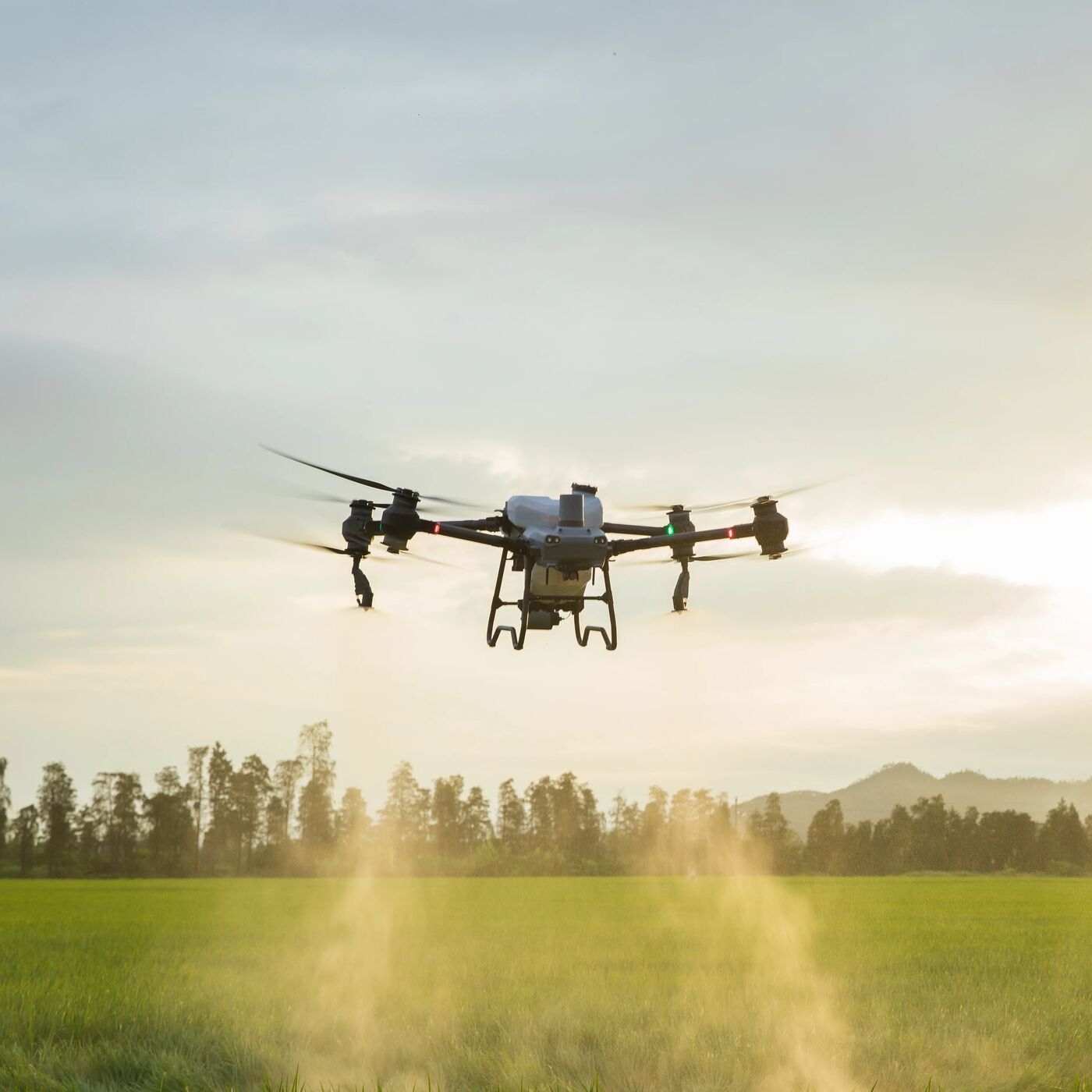
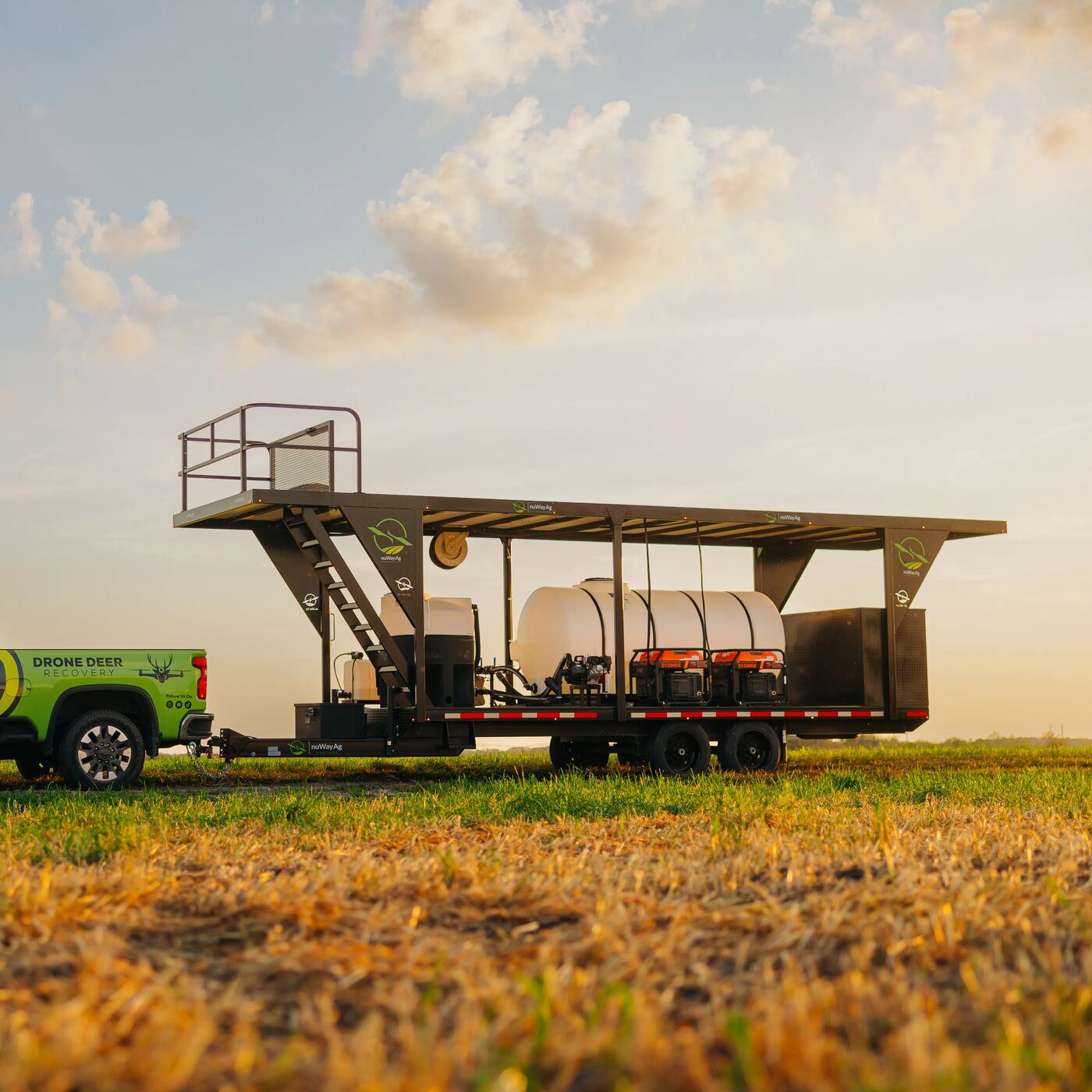
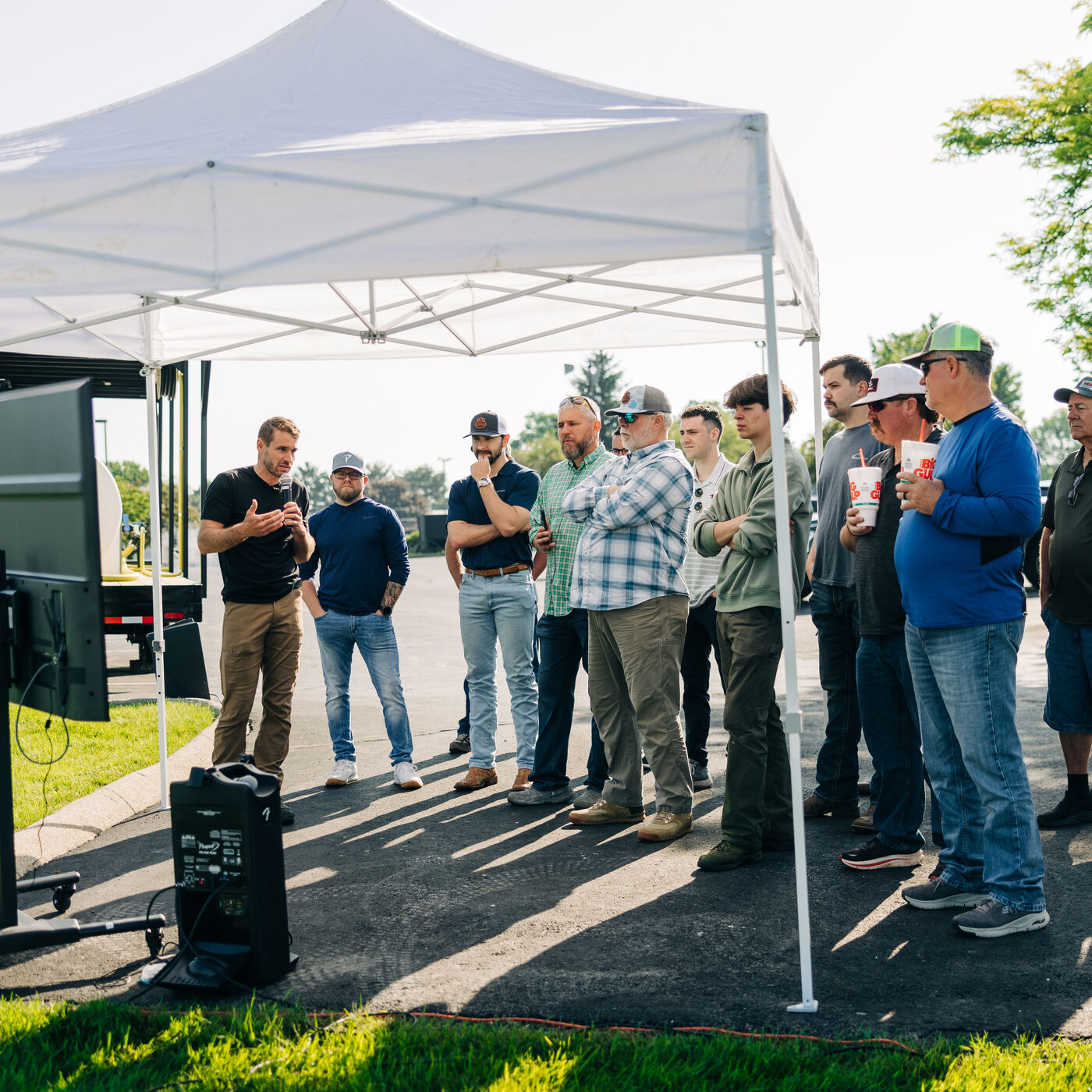
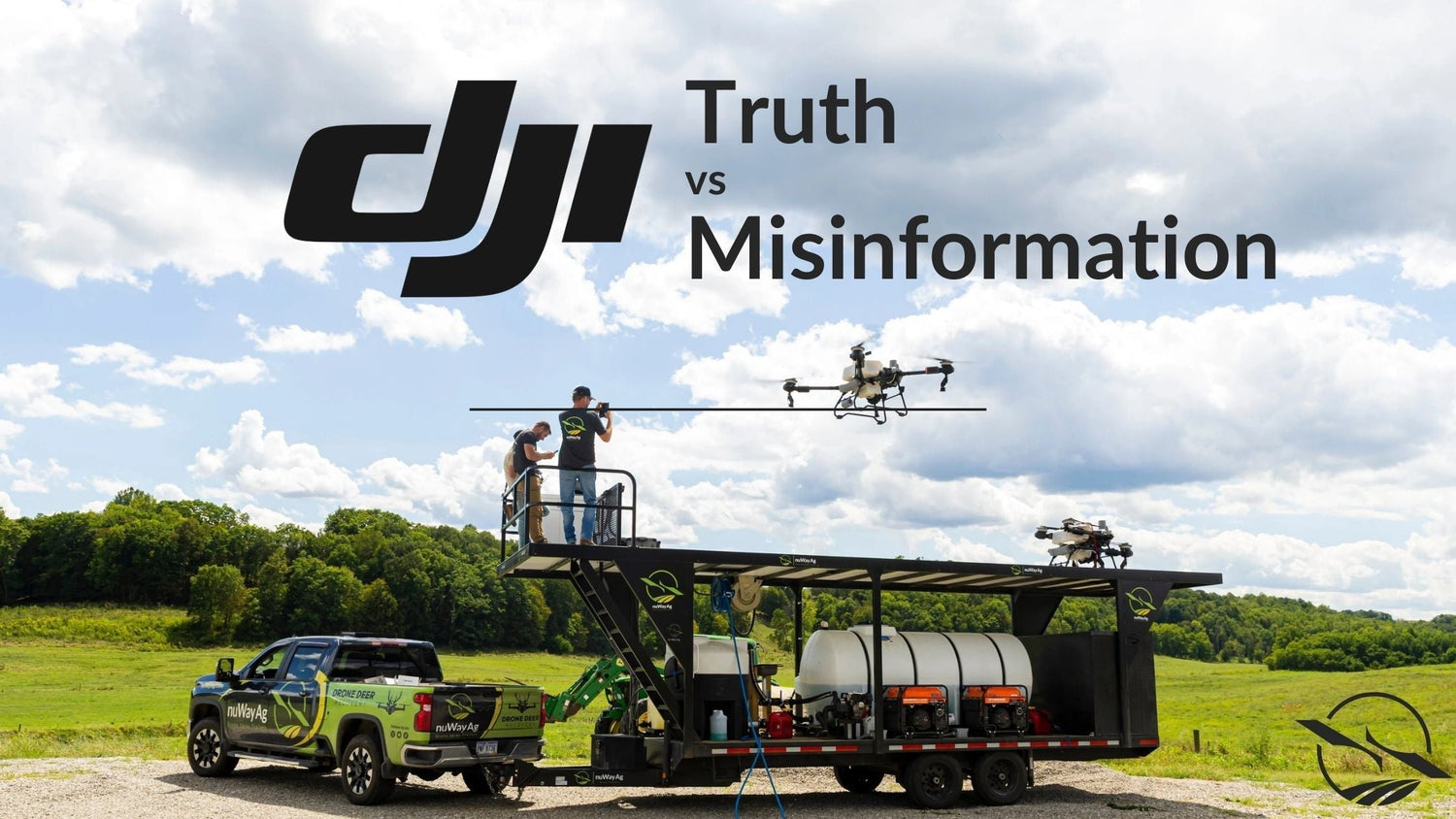
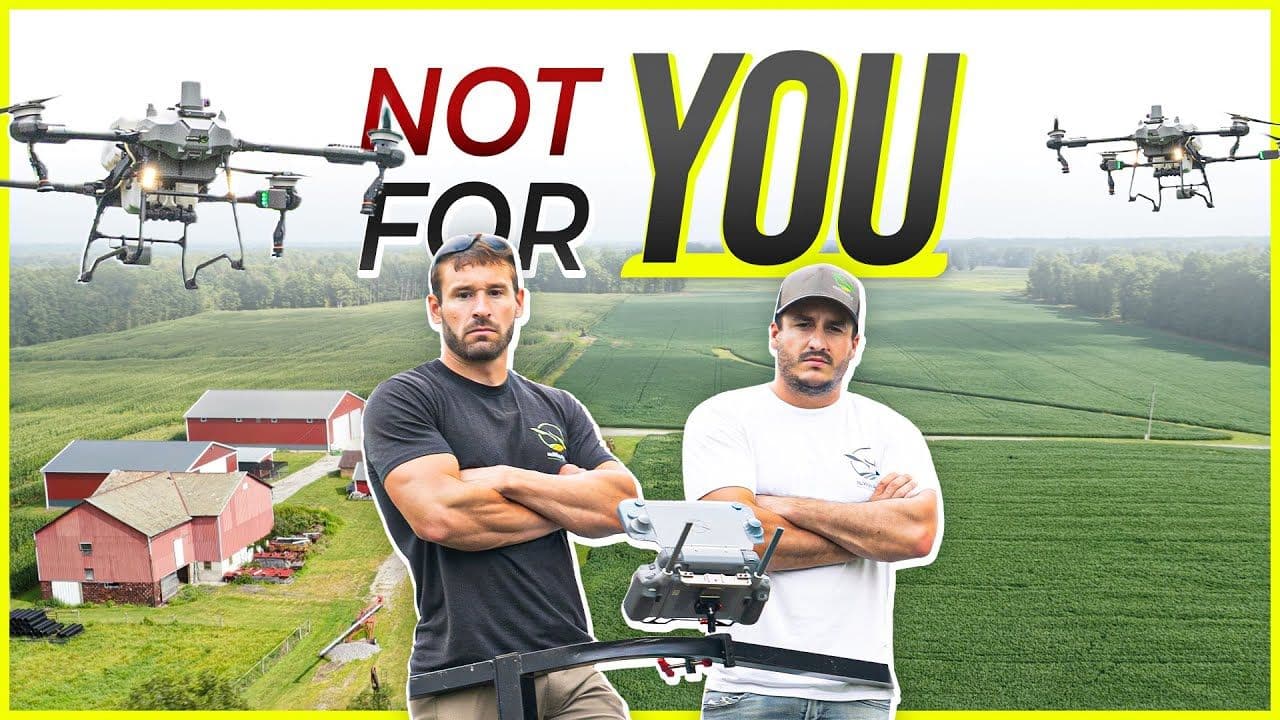
Leave a comment
This site is protected by hCaptcha and the hCaptcha Privacy Policy and Terms of Service apply.